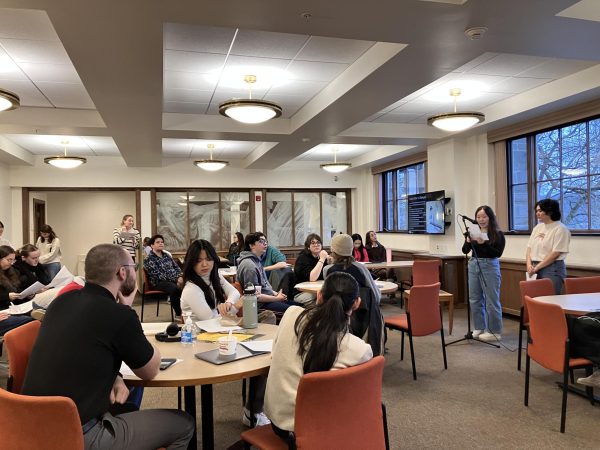This Week at the Movies: In Time
Science fiction is a curious genre. It plays with reality and lets the audience members experience something far beyond their own imaginations. It can serve as a foil to our own world and illuminate the various social and political issues that plague our own existence. Sometimes, though, it can be completely nonsensical. The world that the film creates can seem almost too foreign and bizarre that it doesn’t entice the audience and any meaning is lost. Overall, science fiction movies can be very interesting and exciting to watch, or they can be a complete mess. Unfortunately, In Time, written and directed by Andrew Niccol, falls into the latter category. Between the undeveloped characters and world, a plot that lacks coherence and an overbearing social message, it lacks any kind of merit. The film is trying very hard to be something special, but in the end, it’s just bad.
The story follows Will Salas (a flat Justin Timberlake), an average factory worker living paycheck to paycheck. However, in the world of In Time, every human being is genetically engineered to age until they are 25. From then on, they have a year to live and the time remaining in their lives becomes the currency by which every person lives. This causes the poor to die quickly and the rich to live forever. One evening, though, Salas is given the gift of over a century of time by a wealthy man who has no desire to live anymore. After that, his mother dies and he decides it’s time to bring down the elitist system that prevents people from living their full lives. He eventually kidnaps the daughter of a wealthy banker (Amanda Seyfried), robs banks and redistributes time to the people of the slums. If that plot synopsis didn’t make much sense, that’s because the plot doesn’t make a lot of sense either. It lacks any kind of real structure. It’s more just a seemingly random series of events that form some kind of story. It suffers from poor pacing and too many story elements that ultimately bring down the film in general. Then there is the matter of character development. They are all extremely one-dimensional and appear to be bipolar as well. Salas is at one moment a seemingly ordinary worker, but then becomes some sort of revolutionary in a matter of days with no rational cause. All of this comes from the film’s desire to create a message that illustrates class struggle and the financial crisis, but it more or less comes off as just plain stupid.
The one really redeeming quality of this movie though, is the set pieces and special effects. The world is divided into very clear class lines, and buildings reflect that. The onyx skyscrapers of the wealthiest district are stunning to behold and the matching black cars are a nice touch. Those cars aren’t just for show, either. In Time has a surprising number of car chases that spice up the movie with some much needed action. Each character’s time counter on their arm is also seamlessly added and really feels like a part of them. There are some issues with the score, however. It’s extremely repetitive and does very little to add anything to the atmosphere created by the set pieces. In fact, sometimes it’s so mismatched that it actually takes away from the movie as a whole, which is extremely disappointing.
In Time had potential to be an intriguing film for science fiction fans and average movie-goers. However, it’s ultimately not worth anyone’s time. There are too many flaws that keep the film from not only being good, but even entertaining. You will be either confused, frustrated or bored with the entire package. It’d be better to save the money for something else.
Contact Will Hazzard at






